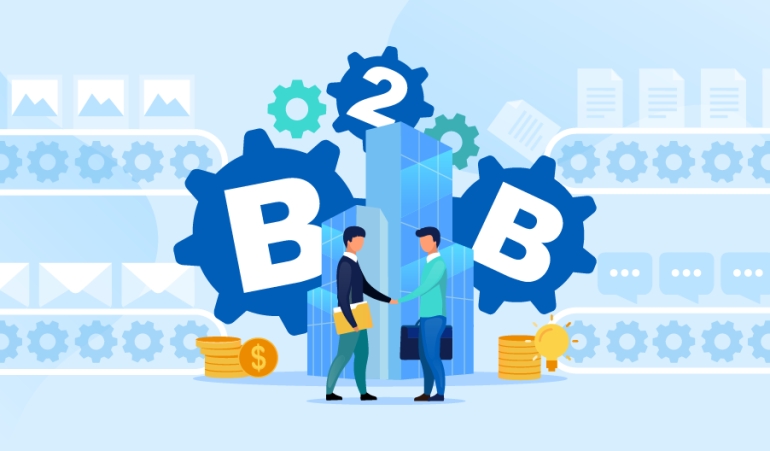
Future of B2B Marketing: How a 4-Hour Strategy is Changing the Game
B2B marketing is undergoing significant transformation in part due to technologies like AI but also due to the shortage of qualified marketing professionals. One of the most promising changes is the emergence of a 4-hour strategy that integrates marketing automation and AI marketing to achieve efficient marketing with Robotic Marketer. This revolutionary approach is particularly beneficial for busy B2B teams who need to streamline complex tasks and improve ROI.
Understanding the 4-Hour Marketing Strategy
The concept of a 4-hour marketing strategy involves executing targeted marketing initiatives within a concise 4-hour window. This approach is designed to maximize efficiency and productivity by focusing on high-impact activities. Instead of spreading efforts thinly over a longer period, the 4-hour strategy condenses essential tasks into a dedicated time frame, ensuring better results in less time. This method is especially important for B2B teams juggling various responsibilities and needing to make the most of their time.
The Role of Marketing Automation in a 4-Hour Strategy
Marketing automation plays a pivotal role in executing a 4-hour strategy. Automation tools streamline repetitive tasks such as email marketing, social media posting, and data analysis. By automating these processes, marketing teams can focus on more strategic activities, thereby enhancing the overall efficiency of their efforts. Automation not only saves time but also improves accuracy, ensuring that marketing messages reach the right audience at the right time.
Examples of Marketing Automation Tools
Various automation tools can be integrated into a 4-hour strategy. For example, email marketing platforms like Mailchimp or HubSpot automate the creation and distribution of email campaigns. Social media management tools like Hootsuite or Buffer schedule and post content across multiple platforms simultaneously. These tools not only save time but also provide valuable analytics to refine future strategies.
AI Marketing: Enhancing Precision and Personalization
AI marketing takes the capabilities of automation to the next level by adding precision and personalization to marketing efforts. AI tools analyze vast amounts of data to identify patterns and predict customer behavior. This enables marketers to create personalized campaigns that resonate with their audience. In a 4-hour strategy, AI marketing tools can quickly generate insights and recommendations, allowing marketing teams to adjust their tactics in real-time.
Real-World Examples of AI Marketing
Several case studies highlight the effectiveness of AI marketing in a 4-hour strategy. For instance, a B2B software company used AI-driven analytics to segment their audience more accurately. This led to a 30% increase in email open rates and a 20% increase in lead generation. Another example is a logistics firm that employed AI chatbots to handle customer inquiries, freeing up human resources for more complex tasks and improving customer satisfaction.
Boosting Efficiency and Productivity
One of the major benefits of a 4-hour strategy is its impact on efficiency and productivity. By condensing marketing activities into a focused time block, teams can eliminate distractions and concentrate on high-priority tasks. This streamlined approach not only enhances productivity but also reduces burnout, as employees are better able to manage their workload. The use of automation and AI further amplifies these benefits by handling repetitive tasks and providing actionable insights quickly.
Long-Term Growth and Sustainability
Implementing a 4-hour marketing strategy can lead to long-term growth and sustainability for B2B businesses. By optimizing marketing processes and leveraging advanced tools, companies can achieve better ROI and allocate resources more effectively. Additionally, the ability to adapt quickly to market changes and customer preferences ensures that businesses remain competitive. This approach fosters a culture of continuous improvement, driving sustainable growth over time.
Marketing Strategy: The Backbone of a 4-Hour Approach
The success of a 4-hour marketing strategy hinges on a well-defined marketing strategy. This involves setting clear objectives, identifying target audiences, and choosing the right tools and tactics. A robust marketing strategy provides the blueprint for executing a 4-hour plan effectively. It ensures that every activity aligns with the overarching business goals and delivers measurable results.
Steps to Develop an Effective Marketing Strategy
Developing an effective marketing strategy requires a systematic approach. First, businesses need to conduct thorough market research to understand their audience's needs and preferences. Next, setting specific, measurable, achievable, relevant, and time-bound (SMART) goals provides clear direction. Finally, selecting the right mix of marketing tactics—such as content marketing, social media marketing, and email marketing—ensures that the strategy is comprehensive and cohesive.
The 4-hour marketing strategy, powered by marketing automation and AI marketing, represents a significant advancement in the world of B2B marketing. By focusing on high-impact tasks within a condensed time frame, businesses can achieve efficient marketing, improved productivity, and long-term growth. This innovative approach is not just a trend but a testament to how modern marketing techniques can adapt to the fast-paced demands of today's business environment.



Leave a comment
Make sure you enter all the required information, indicated by an asterisk (*). HTML code is not allowed.